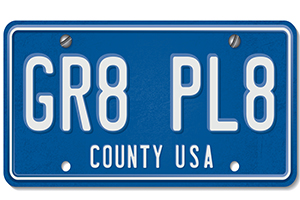 Tech Tip:
Tech Tip:
Heartbleed: What Lawyers Should Know
You’ve probably heard about “Heartbleed,” a failure of encryption security protecting data, such as passwords, sent to some websites.
According to the Lawyerist blog, Heartbleed primarily affects medium security sites, such as social media, search engine, and commerce sites.
The risk of data exposure increased since the accidental creation of the Heartbleed code two years ago, but there is no evidence of data breach (yet). Most affected sites have patched the problem.
Websites exposed to Heartbleed potentially allowed passwords or other data to be collected. This is particularly problematic for those who use the same password at multiple websites.
So change your passwords at websites affected by Heartbleed (there are published lists of affected sites), and at other sites using the same password.
In the future, use a password manager or unique passwords for each online account.
Note: Neither the State Bar of Wisconsin nor the Wisconsin Court System uses the version of vulnerable OpenSSL software that is causing the Heartbleed bug.
By the Numbers:
26%
The percentage of lawyers who said doing meaningful work is their greatest career concern, according to a survey from Robert Half Legal.
 It was the top response. Benefits ranked second (20%), followed by career growth and professional development (18%). Compensation took 14 percent of the votes.
It was the top response. Benefits ranked second (20%), followed by career growth and professional development (18%). Compensation took 14 percent of the votes.
Quotable:
“Watson the lawyer is coming.”
– Ralph Losey, a lawyer and legal technology expert, referring to IBM-inspired “Watson,” a computer that beat humans in Jeopardy.
Losey says computer artificial intelligence will continue to shape the practice of law, as lawyers and law firms use software tools for document review and other time-consuming tasks that could be “coded” to replace actual lawyers, according to a CNN Money article, “Here Come the Robot Lawyers” (March, 2014). And Josh Blackman, an assistant professor at South Texas College of Law, recently wrote a paper about the “ethical, jurisprudential, and legal implications of artificial intelligence systems that can offer legal services,” as noted in his blog.
If you are now worried about losing your job to a robot, don’t be. Blackman notes the many fundamental questions that must be answered before nonhumans can start making and developing legal arguments.
 Out There:
Out There:
License Plate Wars
We know Wisconsin lawyers like their specialty law-related license plates (we have a running list going). But what if you’re an atheist and you want the license plate reading “8THEIST,” should you get it?
One New Jersey woman is suing the state’s motor vehicle commission in federal court for that right. The commission denied her request as objectionable. But the same commission did not flag a plate request for “BAPTIST,” according to the lawsuit. Preferring religion over anti-religion? A violation of First Amendment rights? We shall see.
Source: Philly.com
 Good Ideas:
Good Ideas:
Honey, I’m Headed to the Store to Update My Will
Lawyers in Canada now offer legal services seven days a week at Walmart stores in Ontario, according to the Toronto Star. And they are quite busy.
Among the services offered by Axess Law: basic wills and powers of attorney, real estate law, and notary services. The two founding attorneys say the service provides fast and affordable services to shoppers with little time to spare.
Lawyers in Canada are not the only ones offering legal services in a retail context. In Connecticut, a lawyer has opened a law firm/barbershop called “Legal Cuts Barbershop” in New Britain. The young lawyer, who cut hair through college and law school, practices law in the back office while three barbers give shaves and haircuts up front. People can come in for a haircut, and leave with a will, or vice versa.
Question & Answer:
That’s a Fine Idea!
Nominate a Wisconsin Legal Innovator
The State Bar is looking for legal innovators. If you are a legal innovator or know one, visit ThatsaFineIdea.com to submit a nomination by June 30.
Why nominate a legal innovator?
 Through examples of innovation, the State Bar seeks to facilitate a future where lawyers thrive in an evolving and competitive marketplace.
Through examples of innovation, the State Bar seeks to facilitate a future where lawyers thrive in an evolving and competitive marketplace.
What is legal innovation?
Innovation means developing new ways of doing something to create value or an advantage. A legal innovation can be a change in or a new service, product offering, business model, delivery system, or internal operation.
How will we showcase legal innovators?
The people behind the best examples of legal innovation will be prominently featured in Wisconsin Lawyer magazine. Learn more at ThatsaFineIdea.com.
